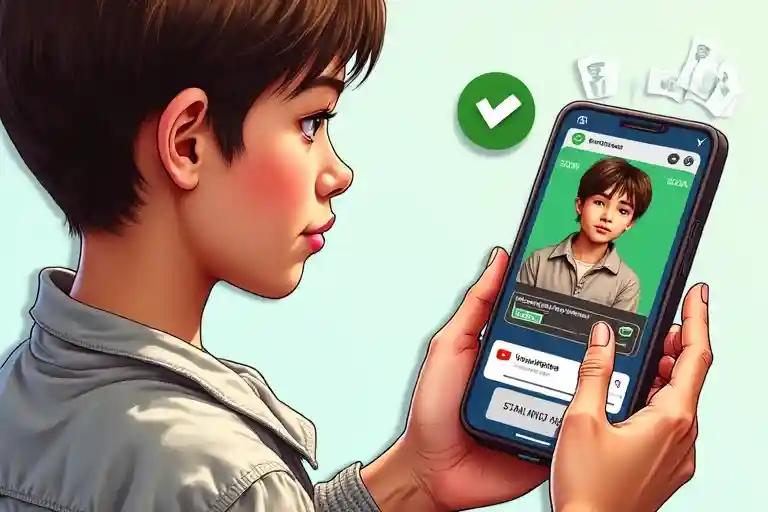Okay, let’s be real. You’ve got something to say. Maybe it’s a killer analysis of the latest Marvel movie, a guide to thrifting the perfect Y2K aesthetic, or your secret recipe for the most epic instant ramen ever. Whatever it is, it’s living in your head rent-free, and you’re ready to get it out there. You’ve seen people on TikTok and Instagram build whole communities around their passions, and you’re thinking… why not me? But where do you even start? Right here. Forget confusing code or spending money you don’t have. We are about to dive into the world of the best blog platforms free to use RIGHT NOW. I’m talking about launching your very own corner of the internet, a place to build your brand, share your thoughts, and maybe even start a side hustle. And the best part? You can do it all without begging your parents for their credit card. We’ll look at the easiest platforms, how to actually make some cash, and what the pros and cons are of each. Think of this as your ultimate starter pack for going from blog zero to blog hero. Let’s get into it!
The journey to finding the perfect home for your content can feel overwhelming, but it doesn’t have to be. In this guide, we’ll break down everything you need to know about the best blog platforms free of charge. We’re not just listing names; we’re giving you the inside scoop on which platform fits your specific vibe—whether you’re a writer, an artist, a future entrepreneur, or just someone with a lot of opinions. We’ll explore how to get started on some of the most user-friendly sites, the real tea on making money from your blog, and even how to use communities like Reddit to your advantage. Plus, we’ll cover the super-important stuff, like staying safe online. Before you know it, you’ll have a live blog you can share with your friends and the world. Check out our guide on the easiest blog platform free start to get a head start.
Best blog platforms free for beginners
When you’re simply starting out, the closing aspect you want is a platform that seems like you want a degree in pc technological know-how to apply it. You need something easy, intuitive, and—most significantly—loose. The purpose is to get your ideas online, now not to spend per week identifying what a “plugin” is. For beginners, the quality options are the ones that allow you to sign up and start writing in mins. They take care of all the technical stuff (like website hosting and protection) so you can recognition on what certainly topics: your content material. These platforms are designed to be extraordinary consumer-friendly, with drag-and-drop editors and pre-made templates that make your weblog appearance exact with none effort.
Think of it like this: you wouldn’t try to learn to drive in a complicated manual sports car, right? You’d start with a simple, automatic car that’s easy to handle. That’s what these beginner-friendly platforms are. They’re the perfect vehicle to get you started on your blogging journey. Let’s look at a couple of the absolute legends in this space. These are the platforms that have been helping people launch their first blogs for *years*, and they’re still some of the top choices for a reason. They’ve perfected the art of being incredibly easy while still being powerful enough to grow with you. If you’re looking for an easy free blog platforms your choice matters.
Getting Started with Blogger: A Step-by-Step
If you have a Google account, what do you think? You already have access to the blogger. This is so simple. Blogs and is one of the blog platforms, and the largest point of view is the insane simplicity and integration with the Google ecosystem. You can really go a blog of less than five minutes. It’s 100% free and it’s not just a free test – it’s always free. This includes your blog hotel and a free ‘blogspot.com underdoman. You can choose between a group of simple topics, draw and drop things (eg the “about me” section or a list of favorite blogs), and just start writing. This is the definition of without frills, which can be a very big plus when you just find your voice and will not be distracted by a million settings.
WordPress.com: The Power and the… Free Plan
Okay, you’ve probably heard of WordPress. It powers a HUGE chunk of the internet, but it’s important to know there are two versions: WordPress.org (which is self-hosted and more complicated) and WordPress.com, which is what we’re talking about here. WordPress.com offers a fantastic free plan that is perfect for beginners. It gives you a little more power and flexibility than Blogger, with a more modern interface and a wider range of beautiful themes. The free plan comes with 3GB of storage space (which is a lot for text and images) and gives you access to essential tools to track your site’s stats. The block editor is super intuitive; it’s like building your post with LEGOs. The main trade-off? The free plan includes WordPress.com ads on your site, and you can’t install custom plugins. But for a powerful, professional-looking start, it’s an amazing option.

Free blog sites to make money
Okay, let’s talk cash. While you might be starting a blog for fun, the idea of making a little money from it is probably floating around in your head. And why not? Turning your passion into a side hustle is a total power move. The good news is that you *can* make money on free blog sites. The bad news? It’s a bit more challenging than on a paid platform. Free platforms often have restrictions on monetization because, well, they need to make money too! But don’t get discouraged. There are still legit ways to earn your first dollar online. You won’t be buying a mansion overnight, but you could definitely earn enough to cover your boba addiction or save up for that new video game.
The key is to be creative and understand the rules of the platform you choose. Most free platforms will have a “terms of service” you should actually glance at to see what’s allowed. For example, some might be cool with you putting up your own affiliate links but not okay with you placing random banner ads. It’s all about playing by their rules while still building your own little empire. Finding the best free blogging platform to make money involves a bit of research.
Ads, Affiliates, and Donations: Your First Dollar
The most straightforward way to make money on a platform like Blogger is through Google AdSense. Since Google owns Blogger, the integration is seamless. Once your blog starts getting some decent traffic, you can apply to have ads placed on your site, and you’ll earn a small amount every time someone sees or clicks on them. Another huge one is affiliate marketing. This is where you promote a product (like a book from Amazon or a cool gadget) and get a commission if someone buys it through your unique link. It feels super authentic because you can just link to things you genuinely love and use. You can also add a “buy me a coffee” or PayPal donation button, allowing readers who love your content to support you directly. It’s like a virtual tip jar!
The Catch: What “Free” Really Means
Here’s the tea: “free” platforms always have a catch. On WordPress.com’s free plan, they run their own ads on your site, and you don’t get a cut. To run your own ads or get serious about monetization, you’ll eventually need to upgrade to a paid plan. With most free platforms, you’re also stuck with their branding in your URL (like `yourblog.wordpress.com` or `yourblog.blogspot.com`). This can look less professional and can be harder for people to remember. Upgrading usually lets you use a custom domain name (like `yourblog.com`), which is a huge step in making your blog feel legit. The free version is an amazing launchpad, but think of it as training wheels. Once you’re ready to go pro, you’ll likely want to invest a little. For more on this, consider 11 Best Blogging Platforms of 2025 to see what the next level looks like.
Popular personal blog sites
Sometimes, it’s not about building a business; it’s about finding a community and expressing yourself. This is where personal blog sites really shine. These platforms are less about monetization and more about storytelling, aesthetics, and connecting with like-minded people. They often have built-in social features, making it easy for your posts to be discovered and shared by others on the platform. If your goal is to share your art, poetry, or just daily thoughts in a space that feels creative and supportive, these are the spots for you. They’re the digital equivalent of a cool, cozy coffee shop where everyone’s sharing their work. It’s less about SEO and more about vibes.
Think of the difference between a personal blog and a money-making blog like the difference between your personal Instagram and a brand’s Instagram. One is for self-expression and connection; the other is more strategic. Neither is better—they just have different goals! A personal blog is your digital diary, your art portfolio, your soapbox. It’s a place to be authentically you, and the platforms built for this understand that. Many people wonder what is the best free platform for this style.
Tumblr: The Vibe-Centric Microblog
Tumblr is a whole universe. It’s a glorious, chaotic, and creative mix of a blog and a social media feed. It’s perfect for visual content—art, photography, GIFs—but also for short-form writing, poetry, and hilarious text posts that go viral. On Tumblr, you don’t just post; you “reblog,” creating a curated stream of content that reflects your personality. It’s less about long, structured articles and more about quick hits of content. The community is massive and built around “fandoms” and specific interests. If you have a niche passion, you will find your people on Tumblr. It’s a fantastic place to build a mood board, share your creations, and find endless inspiration.

Medium: For the Serious Storytellers
If you see yourself as more of a writer and want to share thoughtful stories or deep dives into topics you care about, Medium is your stage. It has a beautiful, clean, minimalist design that puts the focus entirely on your words. The built-in audience is a huge plus; people come to Medium specifically to read high-quality content. You can publish your stories for free, and they have the potential to be seen by millions of readers. Medium also has a Partner Program. If you put your stories behind their “metered paywall,” you get paid based on how much time members spend reading your work. It’s a great way to get noticed for your writing talent and potentially earn from it without having to manage your own website.
For a good comparison of different platform types, from personal blogs to business sites, you can check out resources like the list of the Top 21 Platform Recommendations. This can help you see where platforms like Tumblr and Medium fit into the bigger picture.
Ghost blogging platform
Now, let’s talk about a cooler, more modern kid on the block: Ghost. Think of Ghost as the indie, minimalist alternative to the big players like WordPress. It was started by a former WordPress developer who wanted to create a platform focused purely on professional publishing. It’s sleek, fast, and beautifully designed. The main difference is that Ghost is a “headless CMS,” which is a fancy way of saying it’s super flexible for developers. But for you, the writer, it offers a gorgeous, distraction-free writing experience. It also has incredible built-in features for newsletters and memberships, which are huge for building a direct relationship with your audience. You can find more on new platforms by asking what are the best platforms to start a blog in 2025.
The catch? The easiest way to use Ghost is through their paid “Pro” plan. However, because it’s open-source software, you can technically download it for free and host it yourself if you (or a tech-savvy friend/parent) know how to set up a server. This is definitely an advanced move and not for beginners, but it’s worth knowing about as a powerful, free (if you do the work) option. For most teens starting out, sticking to their paid, managed hosting is the way to go if you choose this path, but knowing about the free self-hosted option is cool knowledge to have in your back pocket for the future. Knowing which is the best free blogging platform often depends on your technical skill.
Best blog platforms free reddit
This might sound weird, but Reddit itself isn’t a blogging platform. However, it’s one of the most powerful *tools* you can use to find the best blog platforms free and to grow your new blog. Think of Reddit as your “research and development” department. There are communities (called subreddits) for literally everything, including blogging. In places like r/blogging, r/BloggingForBeginners, and r/SideHustle, you can read real, unfiltered reviews from people using these free platforms every single day. You can ask questions, get feedback on your blog’s design, and learn what’s working for others right now. It’s like having a giant focus group at your fingertips.
Once your blog is live, you can use Reddit to promote your content—but you have to be smart about it. Don’t just spam your links everywhere; that’s a quick way to get banned. Instead, become a genuine member of relevant communities. If you have a blog about sustainable fashion, participate in discussions on r/SustainableFashion. Then, when it’s relevant and helpful, you can share a link to a blog post you wrote. It’s about adding value first, promoting second. This is how you find your first true fans. Want to know what Reddit thinks? Check out threads like best free blogging platform reddit for direct opinions.
Comparison of Free Blogging Platforms
| Platform | Ease of Use | Customization (Free Plan) | Monetization (Free Plan) | Best For… |
|---|---|---|---|---|
| Blogger | Extremely Easy | Basic (Templates & Gadgets) | Good (Easy AdSense integration) | Absolute beginners who want a simple, no-fuss start. |
| WordPress.com | Easy | Good (Modern themes) | Limited (Platform ads run, no affiliate links on some plans) | Beginners who want a professional look and room to grow. |
| Medium | Extremely Easy | Very Low (Focus is on writing, not design) | Good (Partner Program based on reads) | Writers who want a built-in audience and clean interface. |
| Tumblr | Easy | High (Lots of visual themes) | Okay (Affiliate links, some ad options) | Visual artists, microbloggers, and fandom communities. |
| Wix | Easy (Drag-and-Drop) | High (Very flexible design) | Limited (Wix branding, need paid plan for most monetization) | Visually-focused creators who want total design control. |
Safety First: Blogging Without the Drama
Okay, let’s have a serious chat for a sec. The internet is awesome, but it can also be a wild place. When you’re putting yourself out there with a blog, you gotta be smart and stay safe. This is non-negotiable! First rule of Blogging Club: Don’t share super-personal information. This means your full name, your home address, your phone number, or the name of your school. It might seem obvious, but it’s easy to let details slip. Use a cool pen name or just your first name. Instead of saying “I go to Northwood High,” say “I go to a high school in my town.” Keep it general!
Second, and this is a big one: always, ALWAYS get your parents’ or guardian’s permission before you start. Show them the platform you want to use and what you want to write about. They can help you navigate the tricky parts, like understanding the terms of service and privacy settings. Plus, it’s just a good idea to have them in your corner. Finally, think about comments. Most platforms let you moderate comments, meaning you have to approve them before they go public. This is your best friend! It lets you filter out any hate, spam, or weirdness before it ever sees the light of day. Your blog should be your safe space, so take control of it. Finding the the best free blogging platform also means finding one with good safety features.
Conclusion
Whew, we’ve covered a LOT. From the super-simple Blogger to the community vibes of Tumblr and the writing-focused Medium, there are so many amazing and best blog platforms free to choose from. The most important thing to remember is that there’s no single “perfect” choice—only the perfect choice for YOU. Think about your goals. Do you want to write long articles or post cool art? Do you dream of making money or just want a space to share your thoughts? Your answers will guide you to the right platform.
The best way to figure it out? Just start! Pick one that sounds cool and give it a try for a week. They’re free, so what do you have to lose? You can always try another one later. You’ve got stories to tell and a voice that deserves to be heard. So go claim your little corner of the internet. We can’t wait to see what you create.
What platform are you leaning towards? Drop a comment below and let us know! And if you found this guide helpful, share it on TikTok or with a friend who’s been thinking about starting a blog.
Stay Updated! The world of blogging is always changing. Bookmark zana.website and check back for the latest updates on platforms, tools, and tips to help you grow your blog!
Frequently Asked Questions
1. Which platform is best for blogging in free?
For absolute beginners who want the easiest start, Blogger is fantastic because it’s 100% free and integrates with your Google account. If you want a more professional look and more features with a path to grow, WordPress.com’s free plan is one of the best overall choices. The best platform truly depends on your specific needs and goals.
2. How do I start a 100% free blog?
You can start a 100% free blog in minutes! Choose a platform like Blogger or the free plan on WordPress.com. Simply sign up with an email address, choose a name for your blog (which will be part of your free URL, like `yourname.blogspot.com`), pick a simple design template, and write your first post. It’s designed to be intuitive and requires no technical skills.
3. Is Blogger 100% free?
Yes, Blogger is 100% free, and it’s one of the few platforms that truly is. Google provides free hosting and a free `blogspot.com` domain. There are no hidden fees or required upgrades to access its core features. You can even monetize your blog with Google AdSense at no cost, which makes it a unique and valuable option for new bloggers.
4. Which blogging site is best for beginners?
Both Blogger and WordPress.com are excellent for beginners. Blogger is arguably the simplest and quickest to set up. WordPress.com is also very user-friendly but offers a more modern interface and a clearer path for future upgrades if your blog takes off. Wix is another great option with a very intuitive drag-and-drop editor if you’re focused on design.









